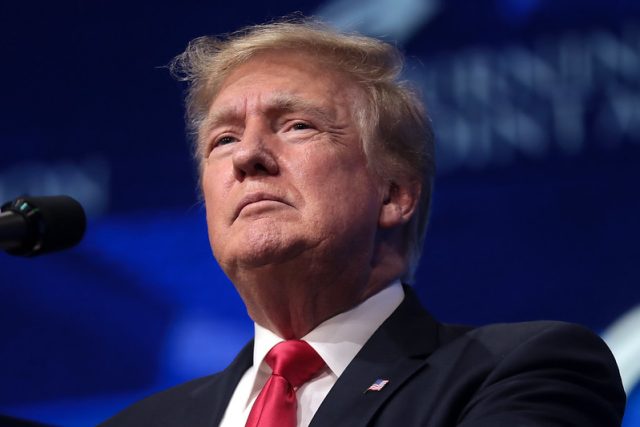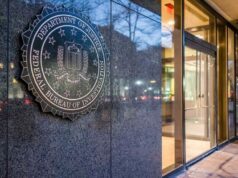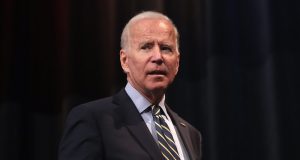On Tuesday, former President Donald Trump weighed in on the ongoing debate to avert a partial government shutdown by urging House Republicans not to fund the government without guarantees on election security. Posting to his social media platform, Truth Social, Trump warned the GOP against passing a continuing resolution (CR) without addressing concerns about voter integrity.
“If Republicans in the House, and Senate, don’t get absolute assurances on Election Security, THEY SHOULD, IN NO WAY, SHAPE, OR FORM, GO FORWARD WITH A CONTINUING RESOLUTION ON THE BUDGET,” Trump wrote. He accused Democrats of attempting to “stuff voter registrations with illegal aliens” and called on the GOP to “close it down.”
The deadline to pass a funding bill is Sept. 30, and without an agreement, the government will shut down on Oct. 1.
When a CR isn’t passed, causing a partial government shutdown, various federal government operations are either halted or slowed. Here’s a breakdown of the key benefits and services that may be affected:
Federal Employee Pay:
–Furloughs: Many federal employees are furloughed, meaning they are sent home without pay until the shutdown is resolved. They typically receive back pay afterward, but there may be delays.
–Essential Employees: Some essential employees, such as those working in national security or public safety, are required to work but may not receive paychecks until the shutdown ends.
Social Security and Medicare:
–Continues: Social Security checks and Medicare benefits typically continue during a shutdown, as these programs are considered mandatory spending.
–Delays Possible: Administrative processes, such as enrolling in these programs or handling specific claims or queries, may slow down.
Veterans’ Benefits:
–Mostly Unaffected: Veterans’ benefits, like pensions and disability payments, often continue, as these are also considered mandatory spending.
–Services Delayed: Administrative functions at the Department of Veterans Affairs (VA), like processing claims or appeals, might face delays.
Unemployment Insurance:
–Continues: Federally-funded unemployment benefits can continue, but there may be delays in processing if staffing is reduced.
Food Assistance (SNAP and WIC):
–SNAP (Supplemental Nutrition Assistance Program): Benefits often continue for a limited period during a shutdown, as the program has reserve funds. However, if the shutdown is prolonged, these benefits could be at risk.
–WIC (Women, Infants, and Children): WIC benefits might face more immediate disruptions, as funding can run out sooner in a shutdown.
Housing Assistance:
–At Risk: HUD (Housing and Urban Development) programs, including public housing subsidies and rental assistance (Section 8), might be delayed, leading to financial strain for low-income families and landlords.
National Parks and Museums:
–Closed: National parks, museums, and other federally funded cultural sites often close, affecting tourism and local economies reliant on park traffic.
– Advertisement –
Tax Refunds and IRS Operations:
–Delayed: While the IRS continues essential functions, tax refunds may be delayed if the agency is operating with reduced staff.
Small Business Loans:
–Suspended: The Small Business Administration (SBA) may halt processing loans for small businesses, affecting entrepreneurs seeking federal assistance.
Education Programs:
–Disruptions Possible: Federal education programs, including grants and work-study programs, could experience delays. If the shutdown is prolonged, funding for school lunch programs could be impacted.
Travel and Border Security:
–Continues with Delays: TSA and Customs and Border Protection agents remain at work, but with reduced staff, airport security lines and border services might be slower.
While some essential services continue during a partial shutdown, nonessential services face delays, and prolonged shutdowns can have wider-reaching effects on both individuals and the economy.
With the 2024 election rapidly approaching and the controversy surrounding government shutdowns, do you think Donald Trump weighing in on the current debate is a smart move to rally his base, or an unforced error that could backfire given the timing? Tell us your thoughts in the comments below!
This is a breaking news story. Please check back for updates.
Article Published With The Permission of American Liberty News.







I think that thoughtful Americans will recognize that this is a dance that Congress does every time federal budgets are up for a vote. Further, while the Democrats try to build their ever-eroding voter base with illegal aliens and threats to grant them all amnesty, it’s essential that Republicans and Independents use every means available to them to enforce common sense election reforms to prevent illegals from voting and receiving public benefits for which that have paid NOTHING. Trump is correct for calling out Congress to ensure voter integrity before authorizing a CR.
Yes needed